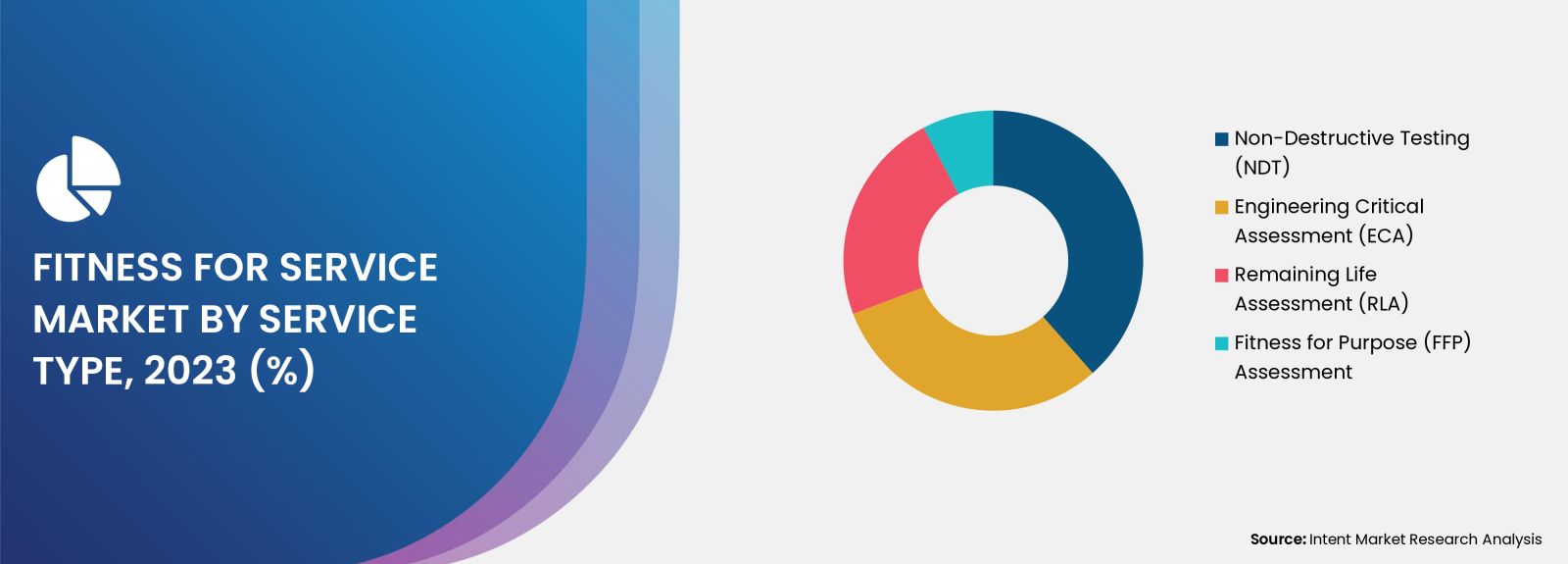sales@intentmarketresearch.com
+1 463-583-2713
Fitness for Service (FFS) Market to reach USD 70.0 % billion in 2030, at a CAGR of 8.3% | IMR
In the latest report published by Intent Market Research, the Fitness for Service (FFS) Market stood at USD 44.0 billion in 2023-e and projected to grow at a CAGR of 8.3% through 2030 to reach USD 70.0 billion.
The fitness for service market refers to a specialty within the engineering and inspection industry that evaluates the suitability or integrity of industrial equipment, structures, and components. This assessment is conducted to ensure that these facilities can continue to operate safely and efficiently within their intended operating parameters. A variety of industries, including oil and gas, power generation, petrochemicals, aerospace, and manufacturing, rely on FFS ratings to assess the health of their equipment. Aging infrastructure and the need for asset integrity and reliability are major contributors to the demand for FFS services.
Advanced Non-Destructive Testing (NDT) techniques play a crucial role in fitness for service (FFS) evaluations due to their heightened sensitivity. These techniques enable the detection of smaller defects, cracks, or material degradation in fitness equipment. Also, advanced NDT methods often offer faster inspection rates and more reliable results, reducing downtime for fitness facilities or equipment.

In the realm of fitness for service (FFS) assessments, conducting engineering critical assessments (ECA) is crucial for evaluating the integrity and fitness of equipment, especially considering the safety and functionality aspects. An engineering critical assessment involves a comprehensive analysis to ascertain the structural integrity of components or systems under various operating conditions. This assessment aims to identify potential flaws, defects, or areas susceptible to failure, considering factors such as material properties, stress concentrations, and load-bearing capacity.
ECAs involve fatigue analysis to evaluate the equipment's resistance to repetitive loading, identify potential fatigue failure points, and recommend measures to mitigate fatigue-related issues. In summary, conducting an engineering critical assessment in fitness for service evaluations is crucial for ensuring the safety, reliability, and longevity of fitness equipment.
FFS assessments find extensive application in the oil and gas industry. They are used to evaluate the structural integrity and continued operational fitness of equipment, pipelines, and assets throughout various stages of oil and gas exploration, production, transportation, and refining. Various non-destructive testing (NDT) techniques, such as ultrasonic testing, magnetic flux leakage, and in-line inspection tools (smart pigs), are used to assess the pipeline condition and determine its fitness for continued service.
Advanced NDT methods, such as ultrasonic and radiographic testing, are used to assess these critical components and ensure their structural integrity. Overall, FFS assessments in the oil and gas industry are essential for ensuring the safe and reliable operation of assets, preventing accidents, minimizing downtime, and optimizing maintenance strategies to maximize the lifespan of critical infrastructure.
FFS assessments are critical for ensuring the safe and continued operation of various industrial assets, including those in the energy, oil and gas, manufacturing, and infrastructure sectors. With aging infrastructure prevalent in Europe, FFS assessments play a crucial role in evaluating and extending the life of existing assets through inspections, condition monitoring, and the application of appropriate repair or mitigation strategies. Europe plays a major role on FFS assessments to ensure the safety, reliability, and compliance of industrial assets with regional regulations and international standards.
Continuous advancements in inspection technologies and adherence to best practices contribute to maintaining the integrity of critical infrastructure across various industries. The key players operating in the market are Applus+, Becht, Bureau Veritas, DNV GL, Element Materials Application, Intertek, MISTRAS, Oceaneering International, ROSEN, Texvyn Technologies, The Welding Institute, Viet Engineering JSC & Zelco Engineering Services.
Available Formats



